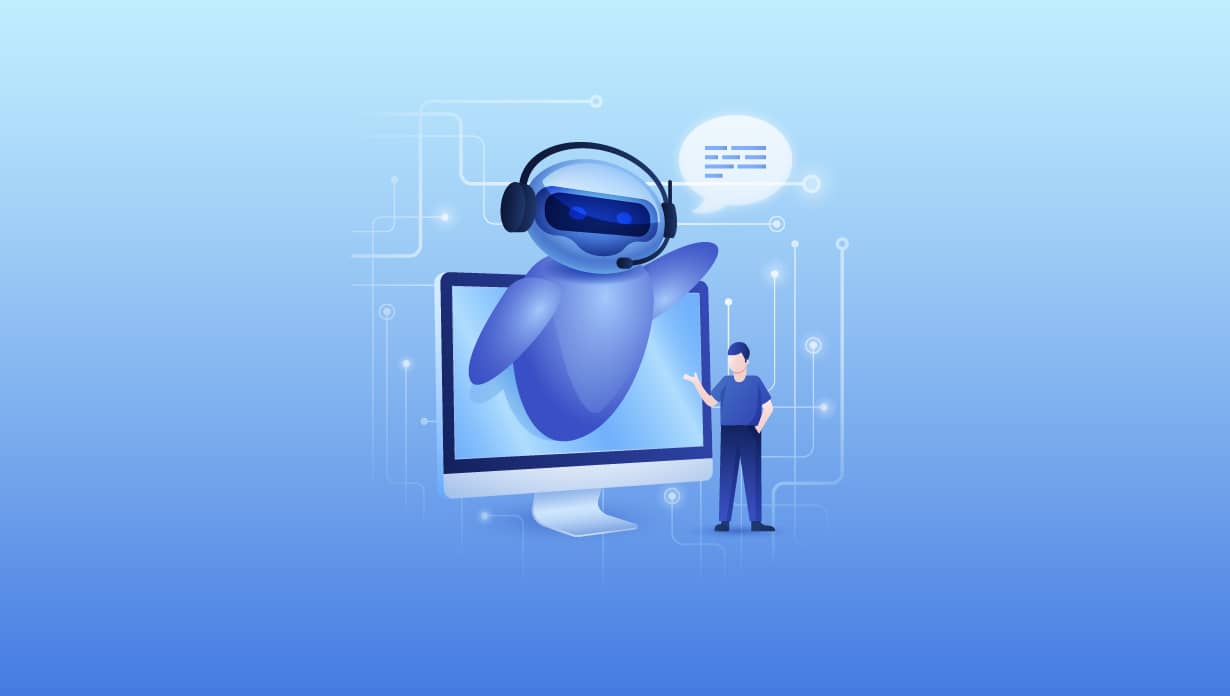In today’s fast-paced world, customer expectations for fast, efficient, and personalized service are higher than ever. Meeting these demands can be a daunting challenge for businesses of all sizes. Thankfully, advancements in Artificial Intelligence (AI) and automation have revolutionized the customer service landscape, providing companies with powerful tools to deliver exceptional experiences while improving efficiency and reducing costs. In this blog, we explore how AI and automation are transforming customer service and why businesses should embrace these technologies to stay competitive.
The Evolution of Customer Service
Customer service has historically handled requests, complaints, and questions mostly through human personnel. While human interaction remains critical in many scenarios, it is not without its limitations. Call centers and support teams often face high volumes of customer inquiries, leading to long wait times, inconsistent responses, and increased operational costs.
With the advent of AI and automation, businesses now have the means to streamline customer service processes, ensuring faster response times, improved accuracy, and better resource allocation. Let’s delve into the key ways AI and automation enhance customer service efficiency.
1. 24/7 Availability with AI-Powered Chatbots
One of the most significant contributions of AI to customer service is the introduction of chatbots. These virtual assistants can handle customer inquiries around the clock, ensuring no query goes unanswered, regardless of time zones or business hours.
- Instant Responses: Chatbots provide immediate replies to common questions, significantly reducing response times.
- Scalability: Unlike human agents, chatbots can handle thousands of interactions simultaneously, ensuring consistent service even during peak times.
- Cost Efficiency: By automating repetitive tasks, businesses can allocate human agents to more complex issues, optimizing resources.
For example, companies like Amazon and Uber leverage chatbots to assist customers with order tracking, FAQs, and troubleshooting, resulting in faster resolutions and higher customer satisfaction.
2. Personalized Customer Experiences with AI
Personalization is a cornerstone of excellent customer service, and AI excels at delivering tailored experiences by analyzing customer data.
- Customer Insights: AI-powered systems can analyze purchasing history, browsing behavior, and previous interactions to predict customer needs.
- Targeted Recommendations: E-commerce platforms like Netflix and Spotify use AI algorithms to suggest content and products based on user preferences, creating a more engaging experience.
- Dynamic Support: AI systems can adapt to a customer’s tone, language, and sentiment, ensuring that interactions feel personal and empathetic.
Businesses can increase brand loyalty and build closer ties with their clients by offering individualized service.
3. Automated Ticketing and Workflow Management
AI and automation tools simplify the management of customer service workflows, reducing bottlenecks and ensuring efficient ticket resolution.
- Smart Ticket Routing: AI-powered smart ticket routing is capable of automatically classifying and allocating support cases to the best agents based on availability and competence.
- Prioritization: Critical issues can be flagged and escalated automatically, ensuring urgent problems are addressed promptly.
- Efficient Follow-Ups: Automation tools can send reminders, follow-ups, and updates to customers without manual intervention.
Platforms like Zendesk and Freshdesk integrate AI-powered ticketing systems to help businesses manage high volumes of customer inquiries seamlessly.
4. Proactive Customer Support
By predicting problems before they happen, AI helps companies transition from reactive to proactive customer care.
- Predictive analytics: AI can spot possible issues like service outages or product flaws by examining trends in consumer behavior.
- Proactive Notifications: Automated systems can notify customers about delays, outages, or upcoming renewals, minimizing frustration.
- Feedback Analysis: Sentiment analysis tools can monitor customer reviews and social media mentions, allowing businesses to address concerns before they escalate.
For instance, airlines use AI to notify passengers about flight delays and offer alternative solutions, enhancing the overall customer experience.
5. Improved Self-Service Options
Self-service options empower customers to find answers and resolve issues independently, reducing the workload on support teams.
- Knowledge Bases: AI-powered search engines enable customers to access relevant articles, FAQs, and guides quickly.
- Interactive Voice Response (IVR): Advanced IVR systems use AI to understand natural language, guiding customers to the right resources without needing a human agent.
- Virtual Assistants: Artificial intelligence (AI) assistants can help clients with difficult tasks like resolving technical problems or finishing applications.
According to studies, a well-implemented self-service system can reduce support costs by up to 30% while improving customer satisfaction.
6. Enhanced Agent Productivity
AI and automation don’t just benefit customers; they also empower customer service agents to work more efficiently.
- Agent Assist Tools: AI can provide real-time suggestions to agents during live interactions, helping them resolve issues faster.
- Knowledge Retrieval: Automation tools can instantly retrieve relevant information from databases, eliminating the need for agents to search manually.
- Training and Development: AI can analyze agent performance and provide personalized training recommendations, ensuring continuous improvement.
With these tools, agents can focus on high-value tasks that require empathy and creativity, leaving routine inquiries to automated systems.
7. Cost Savings and ROI
Implementing AI and automation in customer service leads to significant cost savings in the long run.
- Reduced Staffing Costs: By automating repetitive tasks, businesses can maintain smaller, more efficient teams.
- Lower Error Rates: Automation minimizes human errors, reducing the need for costly corrections.
- Faster Resolutions: With AI handling initial inquiries and routing tickets efficiently, resolution times decrease, leading to higher customer retention rates.
Businesses that invest in AI and automation often see a strong return on investment (ROI) due to increased efficiency and improved customer satisfaction.
Challenges and Considerations
While AI and automation offer numerous benefits, there are challenges to consider:
- Implementation Costs: Initial setup and integration of AI systems can be expensive for small businesses.
- Data Privacy: Businesses must ensure that customer data is handled securely and complies with regulations like GDPR.
- Balancing Automation and Human Touch: Over-reliance on automation can lead to impersonal interactions. Businesses must strike a balance to maintain empathy in customer service.
By addressing these challenges, businesses can maximize the benefits of AI and automation while minimizing risks.
The Future of AI in Customer Service
The future of customer service lies in the continued evolution of AI and automation technologies. Emerging trends include:
- Voice AI: Virtual assistants like Alexa and Google Assistant are becoming more sophisticated, enabling voice-based customer interactions.
- AI-Powered Analytics: Advanced analytics tools will provide deeper insights into customer behavior and preferences.
- Hyper-Personalization: AI will enable even more granular levels of personalization, tailoring experiences to individual customers.
As these technologies mature, businesses that adopt them early will gain a competitive edge in delivering exceptional customer service.
Conclusion
AI and automation have fundamentally transformed customer service, making it faster, more efficient, and highly personalized. By leveraging these technologies, businesses can improve customer satisfaction, enhance agent productivity, and achieve significant cost savings. However, successful implementation requires a thoughtful approach, balancing automation with the human touch to create meaningful and empathetic interactions.
In a world where customer experience is a key differentiator, investing in AI and automation is no longer optional but essential for long-term success. By embracing these innovations, businesses can not only meet but exceed the ever-growing expectations of their customers.





